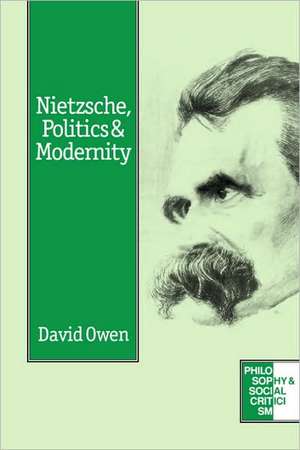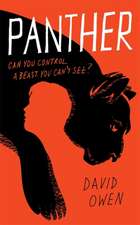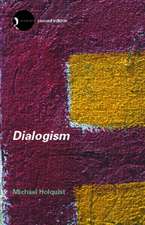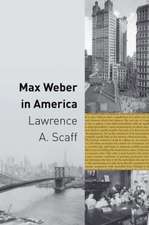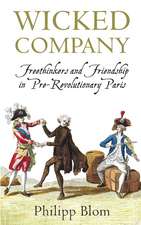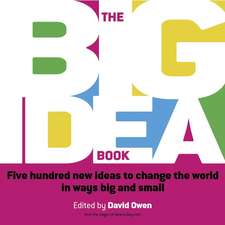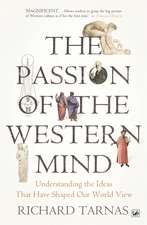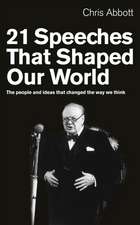Nietzsche, Politics and Modernity: Philosophy and Social Criticism series
Autor David Owenen Limba Engleză Paperback – 26 sep 1995
| Toate formatele și edițiile | Preț | Express |
|---|---|---|
| Paperback (1) | 483.61 lei 6-8 săpt. | |
| SAGE Publications – 26 sep 1995 | 483.61 lei 6-8 săpt. | |
| Hardback (1) | 1219.06 lei 6-8 săpt. | |
| SAGE Publications – 7 noi 1995 | 1219.06 lei 6-8 săpt. |
Preț: 483.61 lei
Nou
Puncte Express: 725
Preț estimativ în valută:
92.54€ • 96.62$ • 76.59£
92.54€ • 96.62$ • 76.59£
Carte tipărită la comandă
Livrare economică 04-18 aprilie
Preluare comenzi: 021 569.72.76
Specificații
ISBN-13: 9780803977679
ISBN-10: 0803977670
Pagini: 192
Dimensiuni: 156 x 234 x 14 mm
Greutate: 0.32 kg
Ediția:1
Editura: SAGE Publications
Colecția Sage Publications Ltd
Seria Philosophy and Social Criticism series
Locul publicării:London, United Kingdom
ISBN-10: 0803977670
Pagini: 192
Dimensiuni: 156 x 234 x 14 mm
Greutate: 0.32 kg
Ediția:1
Editura: SAGE Publications
Colecția Sage Publications Ltd
Seria Philosophy and Social Criticism series
Locul publicării:London, United Kingdom
Recenzii
`Nietzsche, Politics and Modernity will be of interest to everyone concerned about Nietzsche's politics, proponents and opponents of liberalism, and students of Nietzche who want a better understanding of some of his central notions. Using Nietzche, Owen makes an important and original contribution to current debates over liberalism and political theory' - Ethics
`The best recent thing I have read on Nietzsche is Daviv Owen's Nietzsche, Politics and Modernity.... Owen's nose for the deeper currents of Nietzsche's thought is an immensely cultivated one, and on most central issues - truth, truthfulness, value - he is a thoroughly illuminating commentator.... Nietzsche's concerns and arguments are situated sensitively within the intellectual history from which they arise, are explained and delved into, sometimes improved upon, and are allowed, at the right moments, to speak for themselves' - The Philosophical Quarterly
`This book is an important contribution to the remarkable body of British literature from which a new Nietzsche has emerged in recent years.... Owen presents a highly persuasive case for regarding him as a leading theorist of agonal politics. More generally, even those who cavil at Owen's interpretation will be unable to deny that this accomplished work provides an irresistible case for Nietzsche's inclusion in the canon of political theory' - Political Studies
`Owen's arguments are presented in an organized manner... This book is interesting and relates Nietzsche to contemporary concerns well' - Choice
`The best recent thing I have read on Nietzsche is Daviv Owen's Nietzsche, Politics and Modernity.... Owen's nose for the deeper currents of Nietzsche's thought is an immensely cultivated one, and on most central issues - truth, truthfulness, value - he is a thoroughly illuminating commentator.... Nietzsche's concerns and arguments are situated sensitively within the intellectual history from which they arise, are explained and delved into, sometimes improved upon, and are allowed, at the right moments, to speak for themselves' - The Philosophical Quarterly
`This book is an important contribution to the remarkable body of British literature from which a new Nietzsche has emerged in recent years.... Owen presents a highly persuasive case for regarding him as a leading theorist of agonal politics. More generally, even those who cavil at Owen's interpretation will be unable to deny that this accomplished work provides an irresistible case for Nietzsche's inclusion in the canon of political theory' - Political Studies
`Owen's arguments are presented in an organized manner... This book is interesting and relates Nietzsche to contemporary concerns well' - Choice
Cuprins
Introduction
Nietzsche <i>contra </i>Liberalism
Reflections on the Character of Contests in Political Theory
Truth and <i>Eros
A Critique of the Philosophical Commitments of Liberal Reason
On the Genealogy of Modernity
A Critical History of the Philosophical Commitments of Liberal Reason
Modernity and the Destruction of the Ascetic Ideal
Nihilism, Decadence and the Necessity of a Counter-Ideal
Modernity, Ethics and Counter-Ideals
Amor Fati</i>, Eternal Recurrence and the Overman
Agonism, Liberalism and the Cultivation of <i>Virtu
Ethics, Politics and the Critique of Political Liberalism
Conclusion
Nietzsche <i>contra </i>Liberalism
Reflections on the Character of Contests in Political Theory
Truth and <i>Eros
A Critique of the Philosophical Commitments of Liberal Reason
On the Genealogy of Modernity
A Critical History of the Philosophical Commitments of Liberal Reason
Modernity and the Destruction of the Ascetic Ideal
Nihilism, Decadence and the Necessity of a Counter-Ideal
Modernity, Ethics and Counter-Ideals
Amor Fati</i>, Eternal Recurrence and the Overman
Agonism, Liberalism and the Cultivation of <i>Virtu
Ethics, Politics and the Critique of Political Liberalism
Conclusion
Notă biografică
Descriere
Written in a clear and engaging style, this text demonstrates Nietzsche's significance as a philosopher and as a political theorist by highlighting his critique of liberalism (in both its philosophical and political forms) and by elaborating the form of ethical and political understanding which his philosophy discloses.
In describing Nietzsche's diagnosis of the modern condition, this book explains the central aspects of his thought including the will to power, the Overman and amor fati. David Owen traces the relevance of Nietzsche's philosophy to current debates in political theory and engages with key figures such as MacIntyre, Taylor, Rorty and Rawls. Owen argues that the liberalism of the latter two can be seen a
